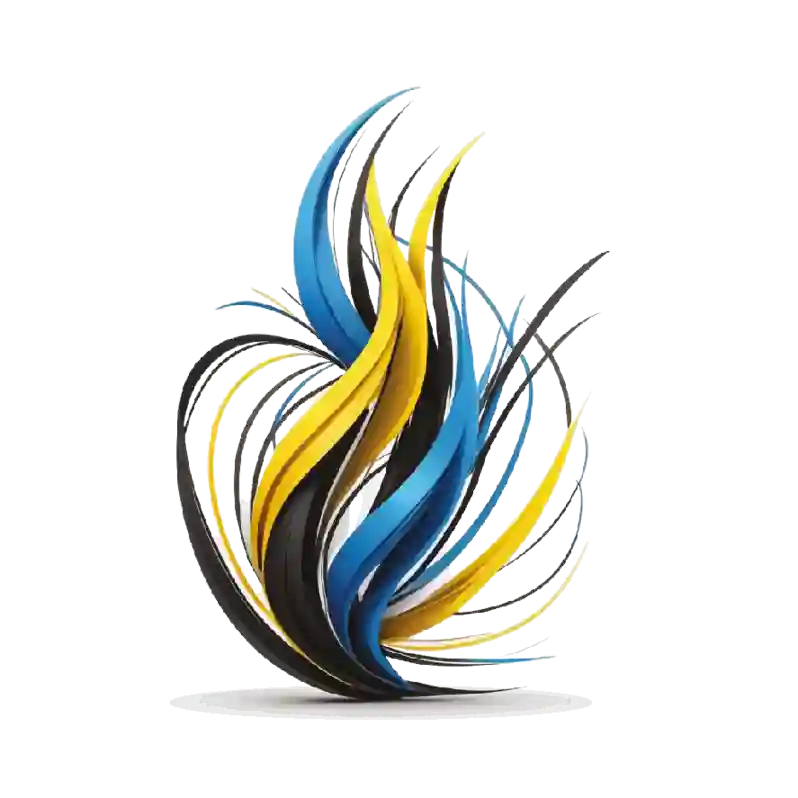The Role of Acupuncture in Managing Sinusitis and Rhinitis
- Nazan Garcia
- Dec 23, 2023
- 4 min read
Updated: Dec 10, 2024
In the realm of sinusitis and rhinitis treatment, acupuncture is gaining recognition, endorsed by the American Academy of Otolaryngology–Head and Neck Surgery.

Introduction
A recent study explored over 60 alternative therapies, with acupuncture standing out as a promising contender. Acupuncture holds promise as a viable non-pharmacologic treatment for sinusitis and rhinitis, particularly for allergic rhinitis. While further research is needed for chronic rhinosinusitis, its safety record and moderate to high ratings support its consideration as an adjunct treatment in certain scenarios.
A Comprehensive Review of Therapies for Sinusitis and Rhinitis
A recent systematic review (Wu et al., 2020), identified over 60 potential alternative therapies for the treatment of sinusitis and rhinitis, shedding light on their efficacy and scientific support. The exhaustive literature review encompassed 2087 titles, with 223 full-text articles meeting the inclusion criteria. Among the myriad of alternative therapies, acupuncture, capsaicin, bromelain, and butterbur extract stood out with low to moderate-high GRADE ratings.
A Spotlight on Efficacy
Acupuncture, particularly for rhinitis, exhibited promising results based on a review of 96 relevant articles (Wu et al., 2020). Notably, 15 randomized controlled trials in English underscored the efficacy of traditional acupuncture, often outperforming sham acupuncture or no treatment.
In a pivotal study comparing acupuncture to standard allergy therapy (Hauswald et al., 2014), it was observed that both groups displayed significant improvements in symptoms during treatment, with no notable distinction between the two interventions. However, the acupuncture group demonstrated sustained enhancements even 10 weeks after the conclusion of therapy, a phenomenon not observed in the group receiving standard medication
The exploration of acupuncture in sinusitis, though limited by only 13 relevant articles, revealed intriguing findings. Two randomized controlled trials studying chronic rhinosinusitis without polyps demonstrated mixed results. In a randomized controlled trial by Rössberg et al. (2005), traditional Chinese acupuncture was compared to conventional medical therapy and sham acupuncture. The study assessed pretreatment and posttreatment computed tomography (CT) scores, sinus-specific quality of life (QOL), and general health QOL. Patients undergoing conventional therapy demonstrated improvement across all measures. However, those receiving acupuncture and sham acupuncture did not show improvement in CT scores, although they did experience enhancements in sinus and general QOL. Despite these observations, the differences between each treatment arm were not deemed statistically significant. A key limitation of this study was the relatively small sample sizes, with approximately 20 patients in each arm.
In a separate randomized controlled trial conducted by Stavem, Røssberg, and Larsson (2008) for chronic rhinosinusitis without nasal polyps (CRSsNP), conventional therapy was compared to traditional acupuncture and sham acupuncture. The study evaluated the impact of these treatments on health-related quality of life (QOL) using the Chronic Sinusitis Survey (CSS) and the 36-item Short Form Health Questionnaire (SF-36). Interestingly, no clear distinctions were found between the various therapies.
Acupuncture's Role in Non-Allopathic Treatments
Acupuncture emerged as the most supported non-allopathic treatment, backed by 15 randomized controlled trials for allergic rhinitis (Wu et al., 2020). However, evidence for its efficacy in chronic rhinosinusitis was less robust, with only two randomized controlled trials and inconclusive results. Despite the challenges posed by a plethora of Chinese-language articles and inconsistent documentation of acupuncture sites, it earned a place in the American Academy of Otolaryngology–Head and Neck Surgery clinical practice guidelines for allergic rhinitis (Seidman et al., 2015)
The safety profile of acupuncture was noteworthy, with a very low risk of serious adverse events. The documented rate of such events was 1 per 1,000,000 sessions, making it a relatively safe alternative. Minor side effects, including dizziness and nausea, were reported, but serious adverse events were notably absent from the collected studies.
Exploring Acupuncture as an Adjunct Treatment
In conclusion, alternative therapies for sinusitis and rhinitis present a diverse landscape with varying levels of scientific support. Acupuncture, with its extensive data supporting its use in allergic rhinitis, emerges as a viable non-pharmacologic treatment option. However, its role in chronic rhinosinusitis remains less clear, emphasizing the need for further research. Despite its moderate to high GRADE rating, the cost-effectiveness and practicality of acupuncture as a primary treatment option warrant consideration, making it a recommended adjunct treatment in certain circumstances.
References
-Hauswald, B., Dill, C., Boxberger, J., Kuhlisch, E., Zahnert, T. and Yarin, Y.M., 2014. The Effectiveness of Acupuncture Compared to Loratadine in Patients Allergic to House Dust Mites. Journal of Allergy, 2014, pp.1–7.
-Rössberg, E., Larsson, P.G., Birkeflet, O., Söholt, L.-E. and Stavem, K., 2005. Comparison of traditional Chinese acupuncture, minimal acupuncture at non-acupoints and conventional treatment for chronic sinusitis. Complementary Therapies in Medicine, 13(1), pp.4–10.
-Seidman, M.D., Gurgel, R.K., Lin, S.Y., Schwartz, S.R., Baroody, F.M., Bonner, J.R., Dawson, D.E., Dykewicz, M.S., Hackell, J.M., Han, J.K., Ishman, S.L., Krouse, H.J., Malekzadeh, S., Mims, J. (Whit) W., Omole, F.S., Reddy, W.D., Wallace, D.V., Walsh, S.A., Warren, B.E., Wilson, M.N. and Nnacheta, L.C., 2015. Clinical Practice Guideline: Allergic Rhinitis Executive Summary. Otolaryngology–Head and Neck Surgery, 152(2), pp.197–206.
-Stavem, K., Røssberg, E. and Larsson, P.G., 2008. Health-related quality of life in a trial of acupuncture, sham acupuncture and conventional treatment for chronic sinusitis. BMC Research Notes, 1(1), p.37.
-Wu, A.W., Gettelfinger, J.D., Ting, J.Y., Mort, C. and Higgins, T.S., 2020. Alternative therapies for sinusitis and rhinitis: a systematic review utilizing a modified Delphi method. International Forum of Allergy & Rhinology, 10(4), pp.496–504.
Acupuncture Clinic in North West London
Discover the beneficial effects of acupuncture for sinusitis and rhinitis symptoms in a clean and hygienic Clinic near you.
Living in London? Book your Acupuncture appointment today!




Comments